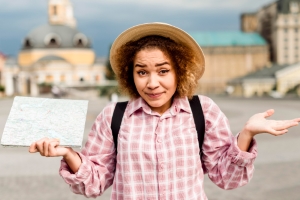Introduction
South Africa is a stunning destination known for its diverse landscapes, vibrant cities, and rich cultural heritage. However, like any travel destination, it’s essential to be mindful of safety precautions to ensure a smooth and enjoyable trip. This guide provides practical tips to help travelers stay safe while exploring South Africa.
General Safety Precautions
- Be aware of your surroundings, especially in crowded areas or unfamiliar neighborhoods.
- Avoid displaying expensive jewelry, electronics, or large amounts of cash in public.
- Keep copies of important travel documents such as your passport, visa, and travel insurance.
- Use a money belt or anti-theft bag to secure valuables.
- Stay updated on travel advisories from your home country’s embassy or consulate.
Transport & Road Safety
- If renting a car, always lock the doors and keep windows closed when driving, especially in urban areas.
- Avoid driving at night in remote areas due to poor lighting and potential road hazards.
- Be cautious of aggressive driving and follow local traffic rules.
- Use registered taxi services or ride-hailing apps like Uber and Bolt rather than hailing a cab off the street.
- When using public transportation, keep your belongings close and avoid traveling alone at night.
Personal Safety in Cities & Towns
- Stick to well-populated and tourist-friendly areas, especially in cities like Johannesburg, Cape Town, and Durban.
- Avoid walking alone at night; use a reliable taxi or rideshare service instead.
- Be cautious of pickpockets in busy areas such as markets, bus stations, and tourist hotspots.
- If approached by strangers asking for money or assistance, politely decline and walk away.
Safety in National Parks & Wildlife Areas
- Always follow the guidance of park rangers and tour guides when on safari.
- Never exit your vehicle in game reserves unless in designated safe areas.
- Keep a safe distance from wild animals and avoid feeding them.
- When hiking, stay on marked trails and carry enough water, sunscreen, and emergency supplies.
Health & Emergency Preparedness
- Drink bottled or filtered water to avoid stomach-related illnesses.
- Protect yourself from mosquito bites in malaria-risk areas by using insect repellent and taking anti-malaria medication if necessary.
- Familiarize yourself with local emergency numbers (e.g., 10111 for police and 112 for mobile emergencies).
- Keep a list of nearby hospitals and clinics in case of medical emergencies.
- Ensure you have adequate travel insurance covering medical expenses and emergencies.
Avoiding Scams & Tourist Traps
- Be cautious of people offering unsolicited help at ATMs; always withdraw money in secure locations.
- Research and book tours through reputable companies to avoid overpriced or fraudulent services.
- If approached by someone claiming to be a police officer, ask for identification before complying with any requests.
- Be wary of overly friendly strangers who quickly invite you to bars or private locations.
Conclusion
By taking these safety precautions, travelers can enjoy the beauty and adventure South Africa has to offer while minimizing risks. Awareness, preparation, and common sense go a long way in ensuring a safe and memorable journey. Whether you’re exploring the bustling cities, breathtaking coastlines, or stunning wildlife reserves, keeping safety in mind will enhance your travel experience.







